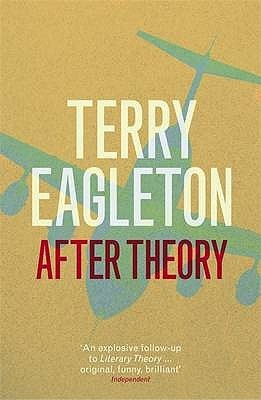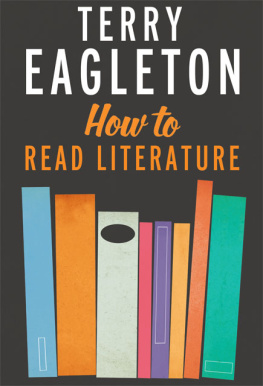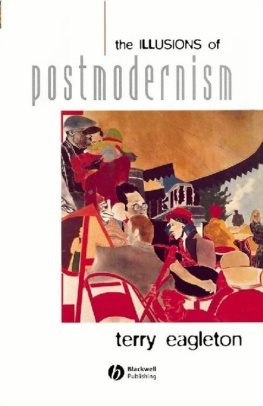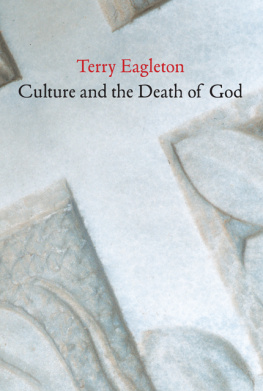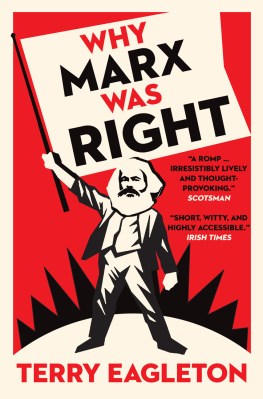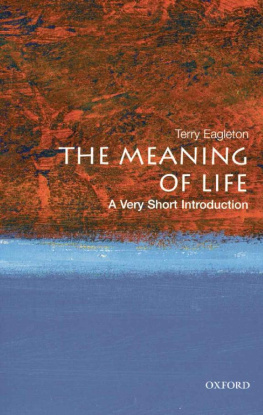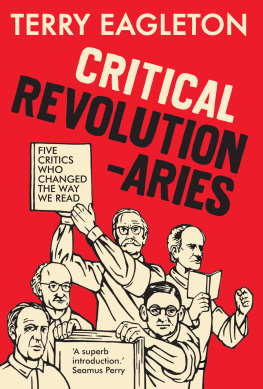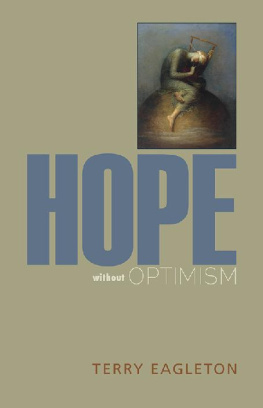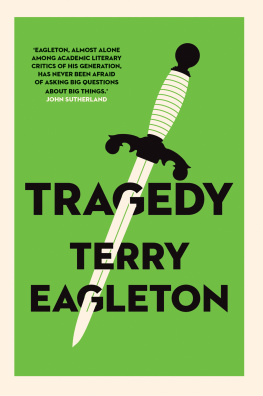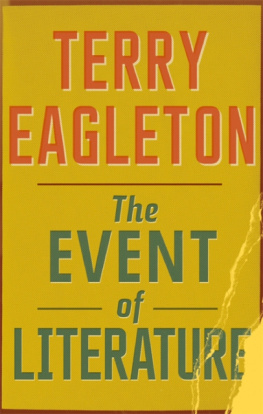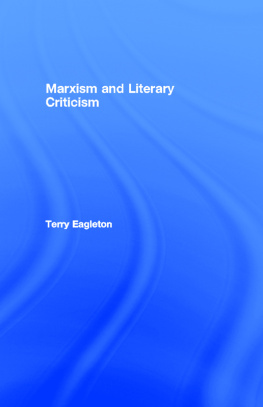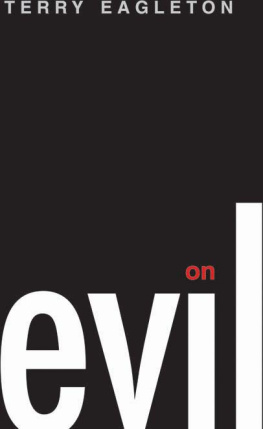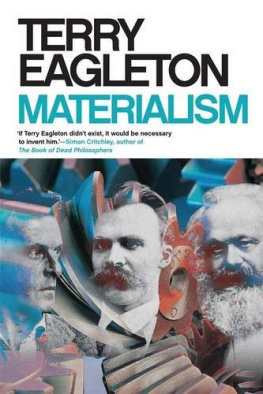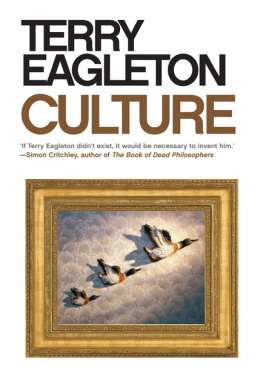PENGUIN BOOKS
AFTER THEORY
Remarkable Terry Eagleton has never been so profound and witty. He tackles pretty well all the great topics of our time and surpasses the intellectual developments of Literary Theory Frank Kermode
Very readable a reminder of the fact that postmodernisms failure to find answers will not stop intelligent minds from mulling over some pretty ancient questions A. N. Wilson, Daily Telegraph
A rare opportunity to enjoy the art of cultural and social diagnosis at its purest! Eagleton offers a unique combination of theoretical stringency and acerbic commonsense witticism, of critical historical reflection and the ability to ask the big metaphysical questions. After Theory not only points out what will follow the decline of postmodern cultural studies, it already is a brilliant example of the theory that will lead a long life after the death of theory Slavoj Zizek
He effortlessly encapsulates decades and sums up intellectual movements with droll wisdom there are plenty of side-swipes at crusty dons John Mullan, Guardian
Showily, and wittily, Eagleton yearns for a species of salvation or transcendence from cultural theories Prospect
An explosive follow-up to Literary Theory , the book that changed the intellectual lives, and curricula, of a generation of undergraduates Unlike the vast majority of contemporary cultural theorists, Eagleton is not afraid to talk about love and death He is an original thinker, whose passion and zest for life, and writing, remain undiminished Christina Patterson, Independent
ABOUT THE AUTHOR
Terry Eagleton is Professor of Cultural Theory and John Rylands Fellow at Manchester University. His books include Literary Theory , a trilogy on Irish culture, several plays, the screenplay for Derek Jarmans film Wittgenstein , and an autobiography, The Gatekeeper , (Penguin 2001).
TERRY EAGLETON
After Theory

PENGUIN BOOKS
PENGUIN BOOKS
Published by the Penguin Group
Penguin Books Ltd, 80 Strand, London WC2R 0RL, England
Penguin Groups (USA) Inc., 375 Hudson Street, New York, New York 10014, USA
Penguin Books Australia Ltd, 250 Camberwell Road, Camberwell, Victoria 3124, Australia
Penguin Books Canada Ltd, 10 Alcorn Avenue, Toronto, Ontario, Canada M4V 3B2
Penguin Books India (P) Ltd, 11 Community Centre, Panchsheel Park, New Delhi 110 017, India
Penguin Books (NZ) Ltd, Cnr Rosedale and Airborne Roads, Albany, Auckland, New Zealand
Penguin Books (South Africa) (Pty) Ltd, 24 Sturdee Avenue, Rosebank 2196, South Africa
Penguin Books Ltd, Registered Offices: 80 Strand, London WC2R 0RL, England
www.penguin.com
Published by Allen Lane 2003
Published by Penguin Books 2004
Copyright Terry Eagleton, 2003
All rights reserved
The moral right of the author has been asserted
Except in the United States of America, this book is sold subject to the condition that it shall not, by way of trade or otherwise, be lent, re-sold, hired out, or otherwise circulated without the publishers prior consent in any form of binding or cover other than that in hich it is published and without a similar condition including this condition being imposed on the subsequent purchaser
ISBN: 978-0-14-192788-6
Contents
In memory of my mother
Rosaleen Riley
(1913 2002)
Prefatory note
This book is largely intended for students and general readers who are interested in the current state of cultural theory. But I hope it will also prove useful to specialists in the field, not least because it argues against what I take to be a current orthodoxy. I do not believe that this orthodoxy addresses itself to questions searching enough to meet the demands of our political situation, and I try to spell out why this is so and how it might be remedied.
I am grateful to Peter Dews for his illuminating comments on part of the manuscript. The influence of the late Herbert McCabe is so pervasive on my argument that it is impossible to localize.
T.E.
Dublin
1
The Politics of Amnesia
The golden age of cultural theory is long past. The pioneering works of Jacques Lacan, Claude Lvi-Strauss, Louis Althusser, Roland Barthes and Michel Foucault are several decades behind us. So are the path-breaking early writings of Raymond Williams, Luce Irigaray, Pierre Bourdieu, Julia Kristeva, Jacques Derrida, Helene Cixous, Jurgen Habermas, Fredric Jameson and Edward Said. Not much that has been written since has matched the ambitiousness and originality of these founding mothers and fathers. Some of them have since been struck down. Fate pushed Roland Barthes under a Parisian laundry van, and afflicted Michel Foucault with Aids. It dispatched Lacan, Williams and Bourdieu, and banished Louis Althusser to a psychiatric hospital for the murder of his wife. It seemed that God was not a structuralist.
Many of the ideas of these thinkers remain of incomparable value. Some of them are still producing work of major importance. Those to whom the title of this book suggests that theory is now over, and that we can all relievedly return to an age of pre-theoretical innocence, are in for a disappointment. There can be no going back to an age when it was enough to pronounce Keats delectable or Milton a doughty spirit. It is not as though the whole project was a ghastly mistake on which some merciful soul has now blown the whistle, so that we can all return to whatever it was we were doing before Ferdinand de Saussure heaved over the horizon. If theory means a reasonably systematic reflection on our guiding assumptions, it remains as indispensable as ever. But we are living now in the aftermath of what one might call high theory, in an age which, having grown rich on the insights of thinkers like Althusser, Barthes and Derrida, has also in some ways moved beyond them.
The generation which followed after these path-breaking figures did what generations which follow after usually do. They developed the original ideas, added to them, criticized them and applied them. Those who can, think up feminism or structuralism; those who cant, apply such insights to Moby-Dick or The Cat in the Hat . But the new generation came up with no comparable body of ideas of its own. The older generation had proved a hard act to follow. No doubt the new century will in time give birth to its own clutch of gurus. For the moment, however, we are still trading on the past and this in a world which has changed dramatically since Foucault and Lacan first settled to their typewriters. What kind of fresh thinking does the new era demand?
Before we can answer this question, we need to take stock of where we are. Structuralism, Marxism, post-structuralism and the like are no longer the sexy topics they were. What is sexy instead is sex. On the wilder shores of academia, an interest in French philosophy has given way to a fascination with French kissing. In some cultural circles, the politics of masturbation exert far more fascination than the politics of the Middle East. Socialism has lost out to sado-masochism. Among students of culture, the body is an immensely fashionable topic, but it is usually the erotic body, not the famished one. There is a keen interest in coupling bodies, but not in labouring ones. Quietly-spoken middle-class students huddle diligently in libraries, at work on sensationalist subjects like vampirism and eye-gouging, cyborgs and porno movies.
Nothing could be more understandable. To work on the literature of latex or the political implications of navel-piercing is to take literally the wise old adage that study should be fun. It is rather like writing your Masters thesis on the comparative flavour of malt whiskies, or on the phenomenology of lying in bed all day. It creates a seamless continuity between the intellect and everyday life. There are advantages in being able to write your Ph.D. thesis without stirring from in front of the TV set. In the old days, rock music was a distraction from your studies; now it may well be what you are studying. Intellectual matters are no longer an ivory-tower affair, but belong to the world of media and shopping malls, bedrooms and brothels. As such, they re-join everyday life but only at the risk of losing their ability to subject it to critique.
Next page
